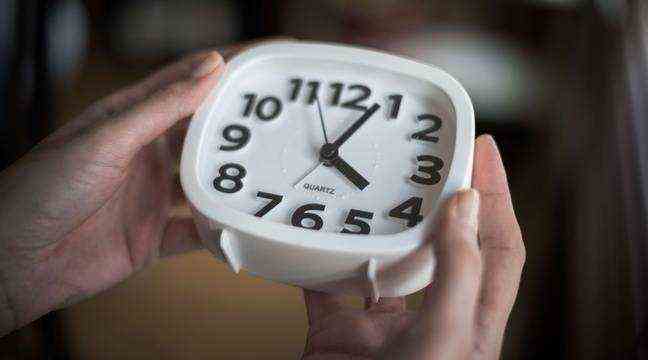Prepare your clocks, alarm clocks, watches and other clocks. During the night of Saturday 30 to Sunday 31 October, Europe – and therefore France – will switch to winter time. Will the daylight saving time and winter time system disappear soon? Is this the last time for winter time?20 minutes takes stock of the questions you are asking yourself.
Are we going to win or lose an hour?
This is the question that comes up with each change of time. Good news for those who like to sleep – or party: this Saturday, Europe will “win” an hour. Concretely, at 3 a.m. on Sunday, it will actually be 2 a.m. in the morning. The night will therefore last an hour longer. But there is still some bad news. With the time change on Sunday, the sun will set on average around 5:30 p.m., instead of 6:30 p.m. on Saturday.
Will the daylight saving time and winter time system disappear soon?
Set up in 1976 to save energy, the system may well be in its last hours (do you have it?). Since 1988, the change to winter time takes place on the last Sunday in October and summer time on the last Sunday in March.
In 2019, the European Parliament voted to end the seasonal time change system, at 410 votes for and 192 against, highlighting the negative effects on sleep, health or road accidents, as well as the lack of real energy savings. But the measure, which was to be effective in 2021, has been suspended due to the coronavirus epidemic.
Is this the last time for winter time?
Not so sure. If the measure has been adopted by the European Parliament, negotiations still have to take place with the member states. Indeed, MEPs have left the choice to each country to keep summer time or winter time, but it would be more practical if within each current zone, all countries adopt the same time slot. .
However, after two years of reflection, the European Council “did not come up with a common position”, regrets the European Parliament to 20 minutes. “I really hope that the EU countries stop dragging their feet and come to the negotiating table to agree on ending the clock change in the EU without further delay,” Johan Danielsson said, member of the Socialist Group in the European Parliament, which inherited the file in February 2020.
“The file had already fallen behind before the Covid because there is a difficulty in finding a consensus. The current system makes it possible to have the same time zone from Spain to Poland, no longer changing the time would result in the creation of more time zones in Europe. In view of the context, I doubt that this is a priority. In my opinion, we will continue to change the time for a long time, this is not the last time ”, already explained Olivier Fabre, mayor of Mazamet (Tarn) and co-president of the European association for summer time, in October 2020 in 20 minutes. If the countries manage to come to an agreement in the coming months, the last time change should be daylight saving time on March 27, 2022.
What do the French think of it?
According to a citizen consultation carried out by the European Affairs Committee of the National Assembly in 2019, 83.71% of French people say they have ended the time change twice a year, against 16.29% for maintaining this measure. But on what time system do the French want to stay? According to this survey, 59.17% of those questioned want to stay in daylight saving time and 36.97% in winter time.

